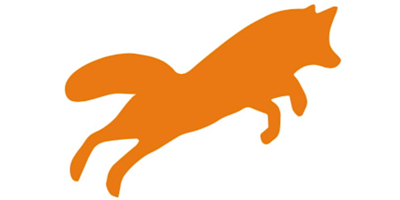A Tale of Two Frogs, Part 2
Okay, so I quoted Carol Dweck, David Allen and Chalmers Brothers at last week's event, plus I played the YouTube video of A Tale of Two Frogs. However, there was an original piece of work that I brought into the presentation: I had put together a "word-cloud" of all words I could think of related to "Mindset." Not that I explained why I chose ALL the words when I presented; I will explain them in a future post. In the meantime in this post, let me summarize my presentation.
Early in the presentation, I asked the audience for words related to mindset. Two of the words they said out loud were viewpoint and paradigm. Then I revealed my word-cloud:
I did not mean to overwhelm the audience. I offered the word-cloud for them to later digest. Oh, I coloured the word Branding in red to let the audience know that I would not cover branding in the presentation although the event organizer gave me the topic that included the word, simply because I could not go deep into branding in the 20-minute presentation in which I wanted for focus on mindset. I did say, though, that mindset is prerequisite to arrive at the branding the enterprise chooses to adopt and live out.
In any case, after a quick flash of the full word-cloud, I narrowed it down to the most important words related to mindset:
Still overwhelming? Not so, I thought. To further illustrate mindset and the associated words (stripped down), I played the video of A Tale of Two frogs, and discussed the moral of the story which I wrote in my previous post. The main message here is that it is the growth mindset (vs. the fixed mindset, as espoused by Dweck) that will bring success to us and in turn to our enterprises.
There are numerous summaries of Dweck's distinctions of the two mindsets and I cited one:
One of the words in my word cloud on mindset is horizon. Why I include the horizon word is to suggest that the rightful growth mindset is required at all horizons or levels of our life; I suggest horizoning our mindset:
I chose David Allen's "Horizons of Focus" to show the levels of our life in which we need the growth mindset:
Without going into details of the Horizons of Focus, the message I gave was that the growth mindset is required at all levels of our work and life (professional and personal). From the ground or runaway daily actions all the way up to the highest level of what we stand for (reason for existence), we need to continually examine whether we approach them in a responsible, accountable and proactively positive way.
Then in the final part of my presentation, I offered another angle of the growth mindset, that is for the need for appropriate "Way of Being." I cited Chapter 9 of the "Language and the Pursuit of Happiness" book by Chalmers Brothers:
The Have-Do-Be example I gave goes like this. If I have a university degree, then I can (do) get a job, then I can be happy. With a job, I can (do) buy a nice car and (do) impress a girl and be cool. With the girl I can then have a great marriage and do all the things we want and we will be happy. This goes on and on but we may not still get to be the way-of-being we head for.
Reversing Have-Do-Be to Be-Do-Have, I gave the example of the preparation and delivery of my presentation: if I (be) am clear about my topic and contents, then I (do) create simple, clear and just enough slides and (do) deliver them simply and clearly, then I will have my audience getting clarity of understanding of what I present.
So be a certain way of being first (e.g. clear, happy, confident, focused and in the present, excited, etc.), then do whatever we do from being that (and more often that not, what we do will come up automatically from the being), then we will have what we want.
A higher Be-Do-Have example related to being happy is of course to start with being happy, including being grateful with what we already have, but we need to really define what happy really means to us, without falling into the reverse trap of needing to have what we don't have yet to be happy!
Thus I ended my presentation, having narrowed down mindset to consist of the fixed mindset or the growth mindset, needing us to adopt the growth mindset at all levels or horizons of our professional or personal lives, and using the Be-Do-Have principle to break away from the wheel or trap of never achieving the being that we want.
Related post: A Tale of Two Frogs
Home Coach Hasan Learning Experiences
